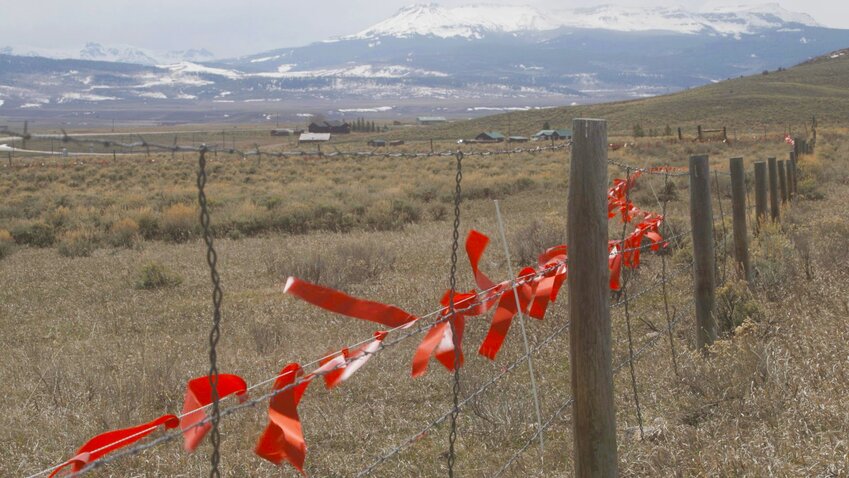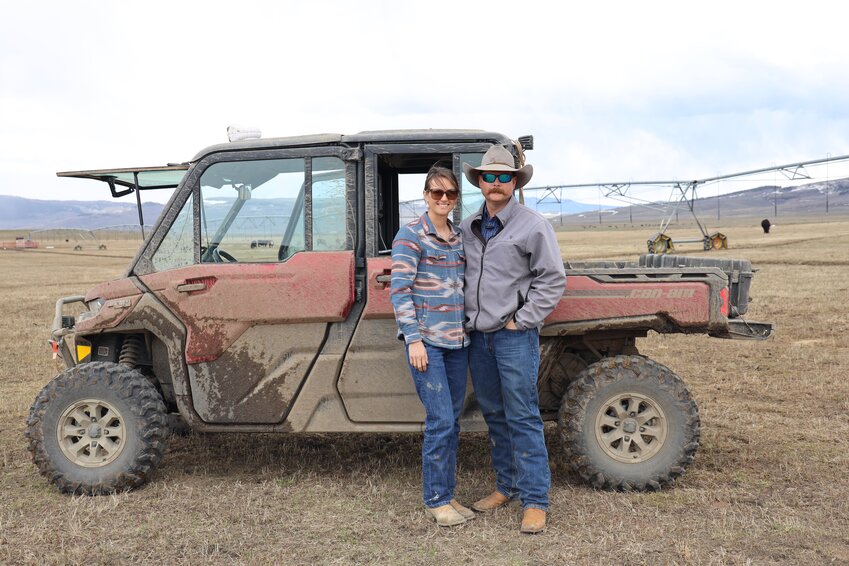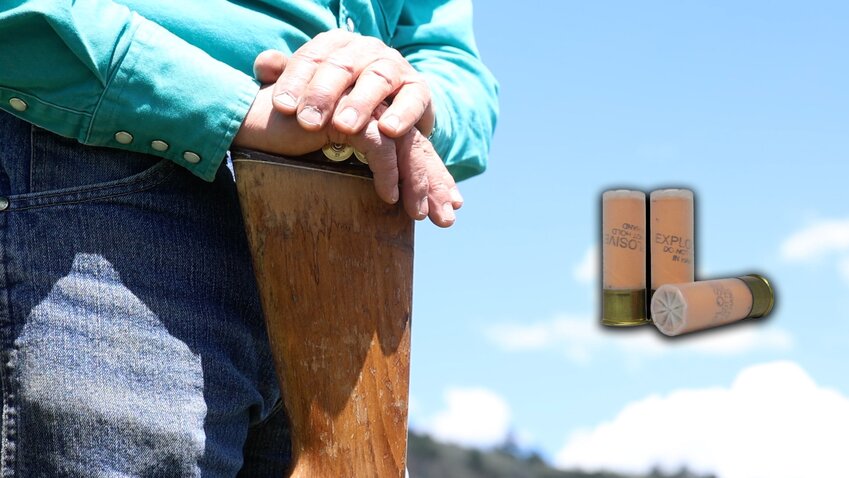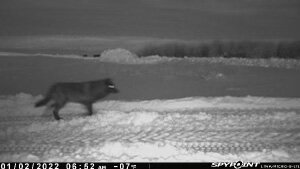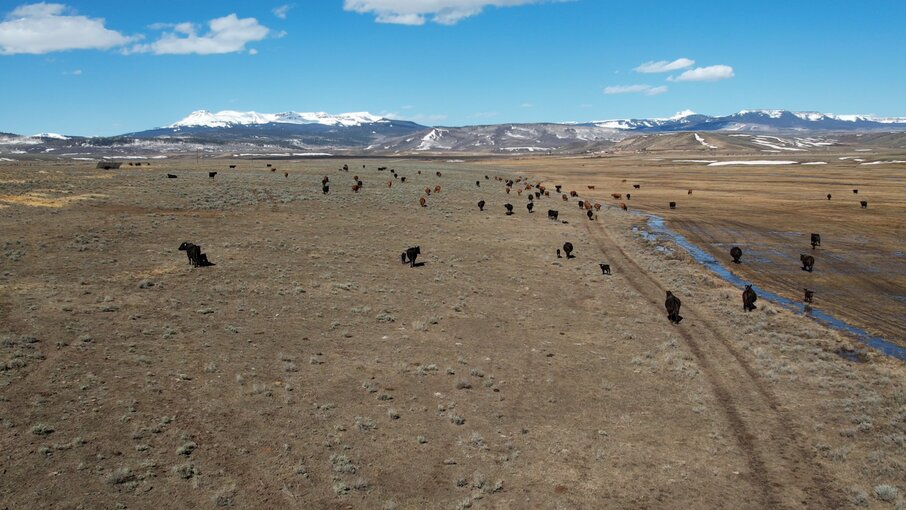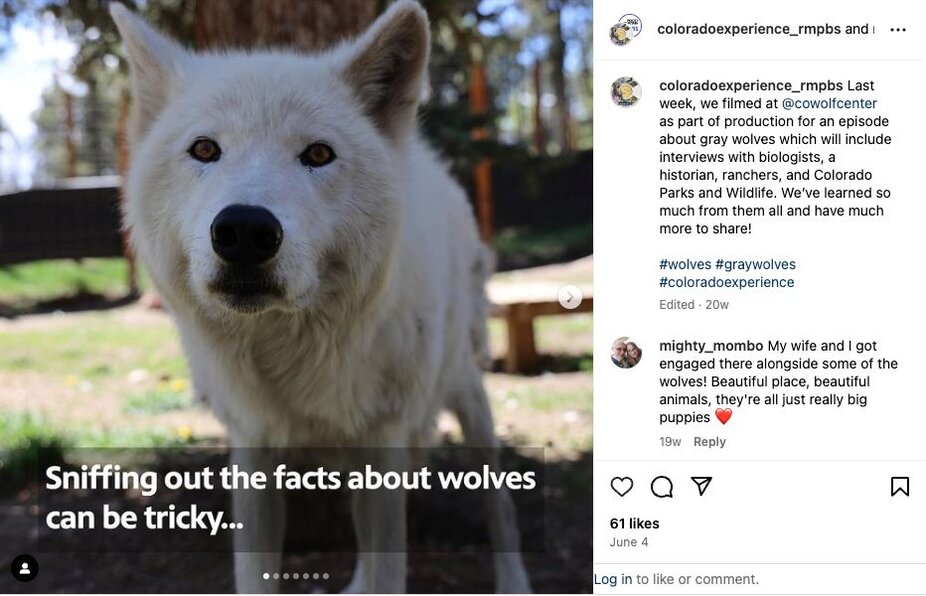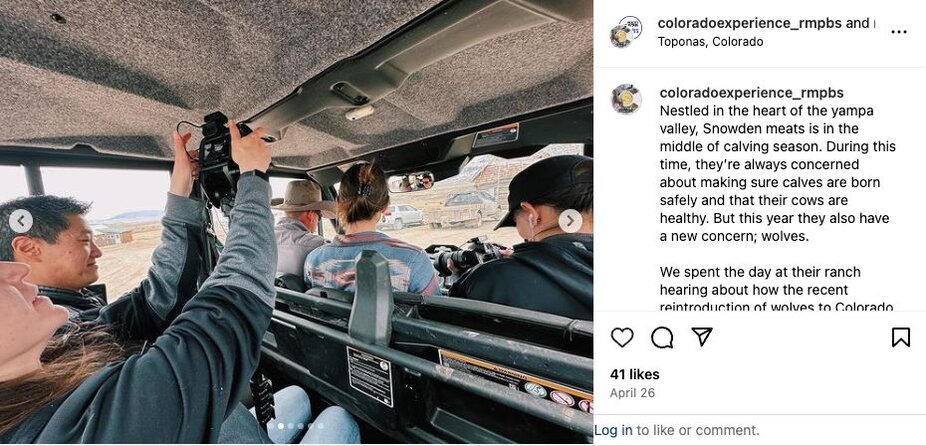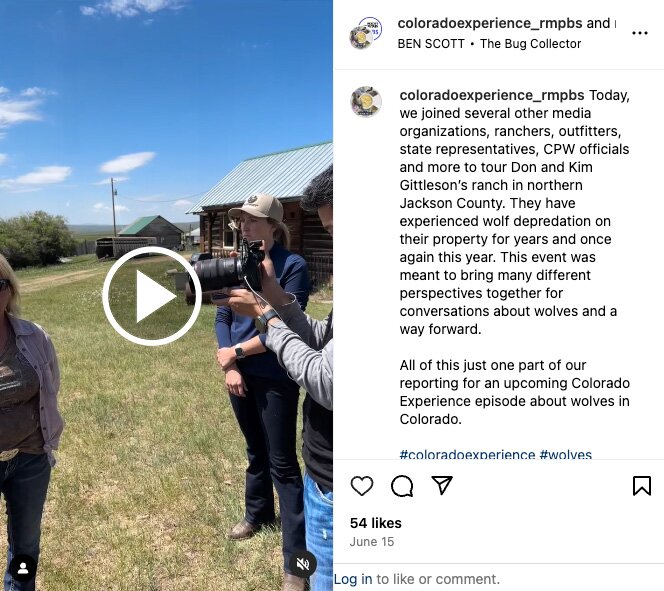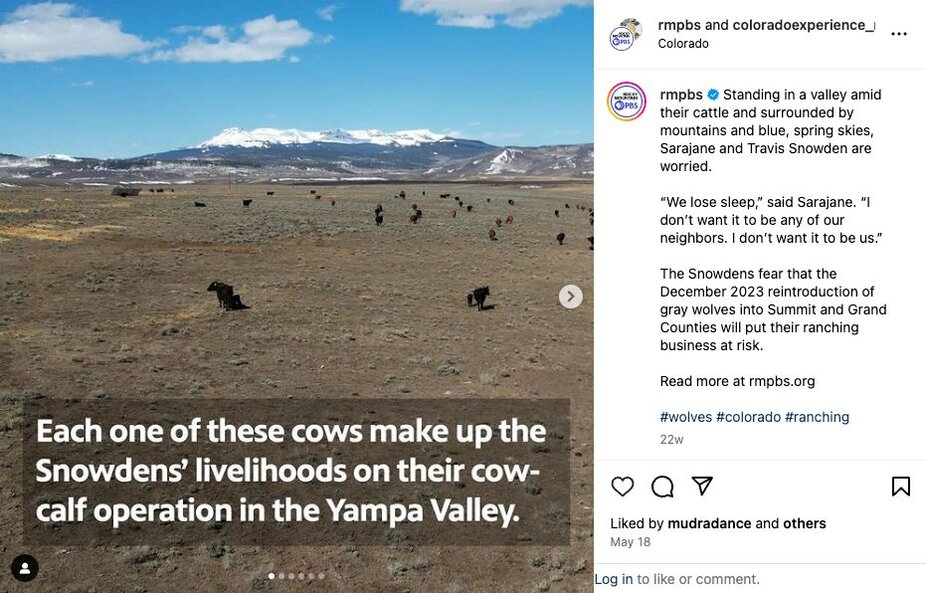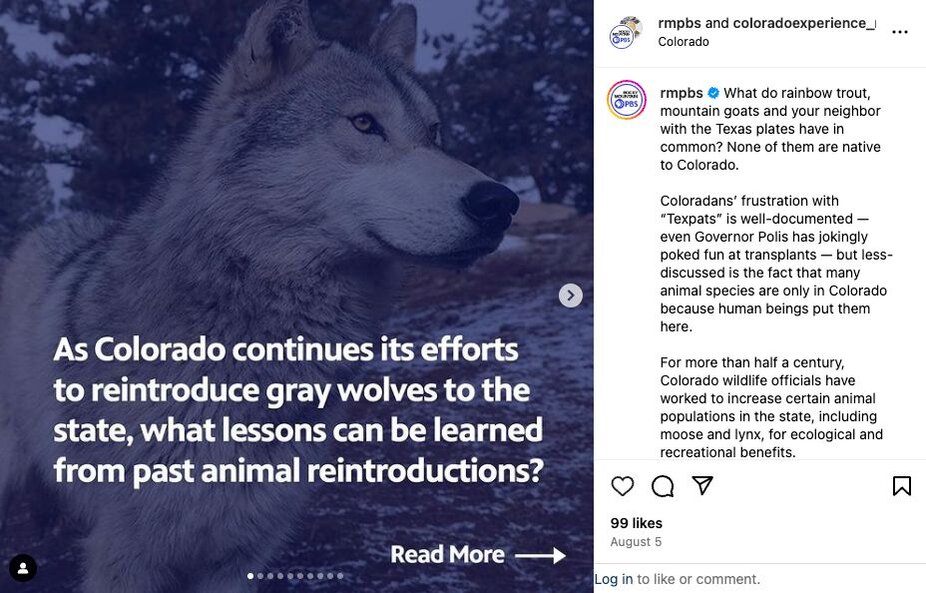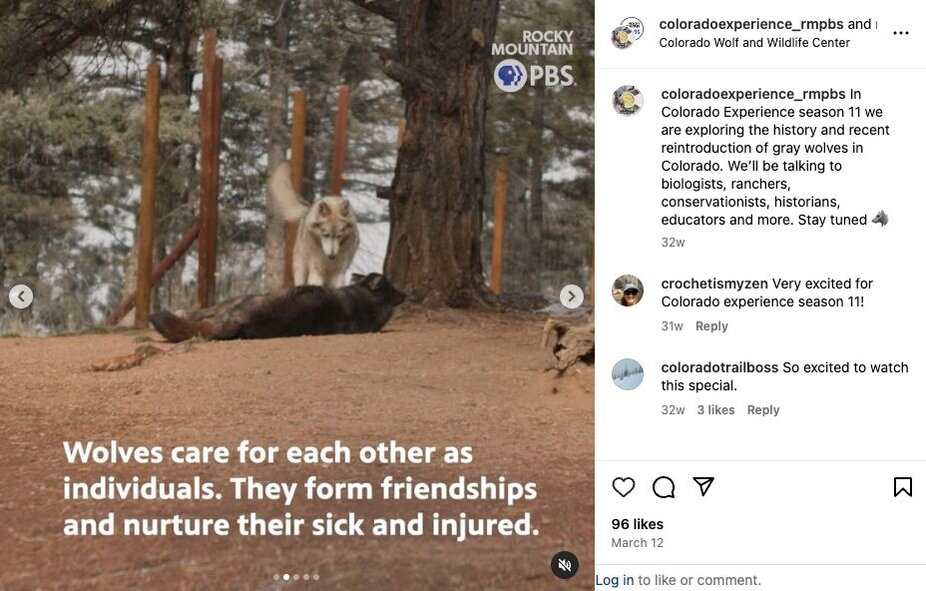Return of the Wolf
share

DIVIDE, Colo. — Cutting up pieces of mostly-frozen Wagyu beef takes some effort, but Kelly Murphy thinks it’s worth it. With every slap of the knife on the counter, she takes a flea and tick prevention pill and shoves it into the piece of beef, now ready to distribute to more than a dozen hungry wolves that reside at the Colorado Wolf and Wildlife center.
At the same time, just 175 miles north, in Routt County, Sarajane and Travis Snowden are spending hours in their side-by-side vehicle closely monitoring newborn calves while every flash of something on the horizon causes concern. The threat of gray wolves attacking or killing their cattle is new for them and not one they wanted.
In 2020, for the first time in American history, Coloradans voted to reintroduce a wildlife species to the state — the gray wolf, or canis lupus. In December 2023, new paws hit the ground, and the disagreements heated up.
“Wolf introduction is not good for our state, but definitely not good for us,” said Sarajane Snowden. “I would much rather put that money somewhere else than fighting off a predator that we never had problems with for the last 30, 50, 100 years.”
Prior to human intervention, gray wolves occupied most of North America, including Colorado. By the late 19th century, wolves were seen as a threat to safety and livelihoods as westward expansion increased. Hunters targeted wolves with bounties offered by stockmen associations and ranchers themselves. It then became federal policy to eliminate wolves; the last wolves were killed in Colorado in the 1940s.
“At the end of the day, we all want the same thing. We want our landscapes to be healthy and thriving. We want cleaner water, cleaner air, and we want to be able to have that landscape thrive for generations. And wolves will help us get there,” said Murphy, assistant director and animal care supervisor at the Colorado Wolf and Wildlife Center.
Still, many mountain ranchers are concerned about the threat of this predator to their livelihoods. Several ranchers Rocky Mountain PBS interviewed emphasized the increased amount of stress, time and money that wolf reintroduction brings to their lives.
This complex issue is the subject of a one hour-documentary, “Colorado Experience: Return of the Wolf.” Rocky Mountain PBS interviewed professors of history and wildlife biology, along with ranchers and wolf advocates to track the story of wolves in Colorado. Watch the episode below.
Also below, you can find more information about this issue including previous articles published as RMPBS has produced the episode.
Fast Facts about Gray Wolves
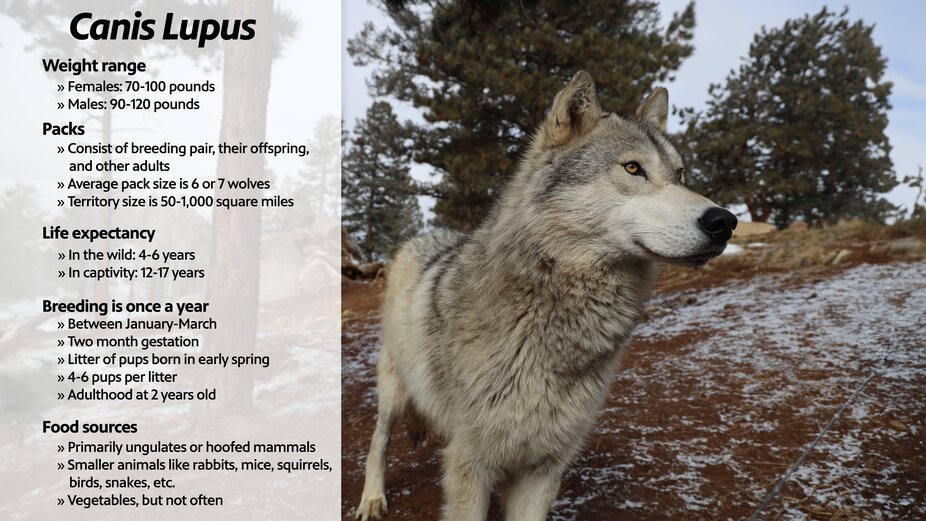
Find more data on:
» General locations of the wolves
» The list of confirmed wolf depredations
» The wolf management plan
» The first annual wolf report
» Materials on nonlethal tools and financial support of ranchers
